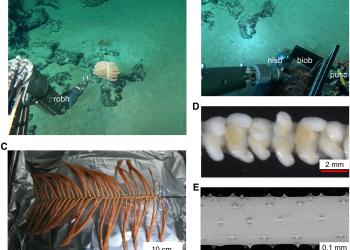Industry-Academia Partnership Underpins New Economy
Partnership between industry and the academia will play a critical role in underpinning the new economy as governments in leading economies turn to scientific and technological research as an engine of growth in the face of financial tsunami, according to Prof Matthew Yuen, Acting Vice-President for Research and Development at The Hong Kong University of Science and Technology (HKUST).
Speaking at a technical conference in Taiwan - the AMD Technology Forum and Exhibit, Prof Yuen noted that one highly unanticipated outcome of the financial tsunami is that governments turn to increasing research funding to enhance their competitiveness. The G8 countries are pumping extra cash into areas such as energy exploration and medical research.
He said that the recent G20 meeting in Pittsburgh epitomized the dawn of the New Economy as the globalized G20, evolved from G8, was designated as the premier forum for international economic cooperation.
Prof Yuen noted that U.S. President Barack Obama has just announced a US$5 billion for medical research. The IMD world competitiveness ranking has seen the BRIC countries emerging as a strong force.
"China's scientific infrastructure is ranked 6th globally. The country is investing about US$1.2 billion in drug discovery and research into infectious diseases. The new economy has arrived with innovation and knowledge transfer as the driving force," he said.
Quoting President Obama again, Prof Yuen said the US Recovery Act is not just about creating make-work jobs. It is about creating jobs that will make a lasting difference for our future
Prof Yuen said that universities' role, in particular that of research universities, is to create quality human capital and knowledge. The Times Higher Education - QS World University Rankings has shown the emergence of Asian research universities in its top 100 list.
"The research universities in China, Hong Kong and Singapore are becoming more visible. At the same time, industries are reducing basic research funding and looking to out-sourcing research. This paradigm shift induces new initiatives to capture human capital and to introduce new open innovation systems," said Prof Yuen.
China, as one of the key drivers of the New Economy, is ideally suited to adopt the new open innovation systems, such as the "triple helix model". It is most likely to occur in the Pearl River Delta as it has the needed ingredients of an economy driven by strong government policy, fast growing industry embracing out-sourced research capability, and a number of leading research universities in Hong Kong. The outcome will be a regional economy driven by innovation and entrepreneurship, Prof Yuen said.
To illustrate the cutting-edge research carried out at HKUST, Prof Yuen shared with participants in the AMD Technology Forum and Exhibit the latest research outcome in aligned carbon nanotubes and its applications as a thermal interface material. The carbon nanotubes array synthesized on aluminum substrate has a thermal resistance 10 times lower than commercial silver epoxy. This will provide an outstanding thermal management solution for power supply systems, high brightness LEDs, and a wide range of electronic components.
Dr Refai-Ahmed, AMD Fellow and the General Chair of the AMD Technology Forum and Exhibit, stated, "HKUST has a lot to offer to the computing industry, and it is interesting to see how the results of the University's research team in the area of carbon nano-tubes has been applied on thermal interface materials.
"Indeed, enabling the manufacturability of this technology will significantly improve the thermal performance of the next generation of processors. Without any question, our industry will benefit from the evolutionary and applied research from academic institutions such as HKUST," he said.
For media enquiries, please feel free to contact :
Ross Lai
Tel: 2358 6306 / 9103 2928
Email: rosslai@ust.hk
Donna Wong
Tel: 2358 6317
Email: donnaw@ust.hk








